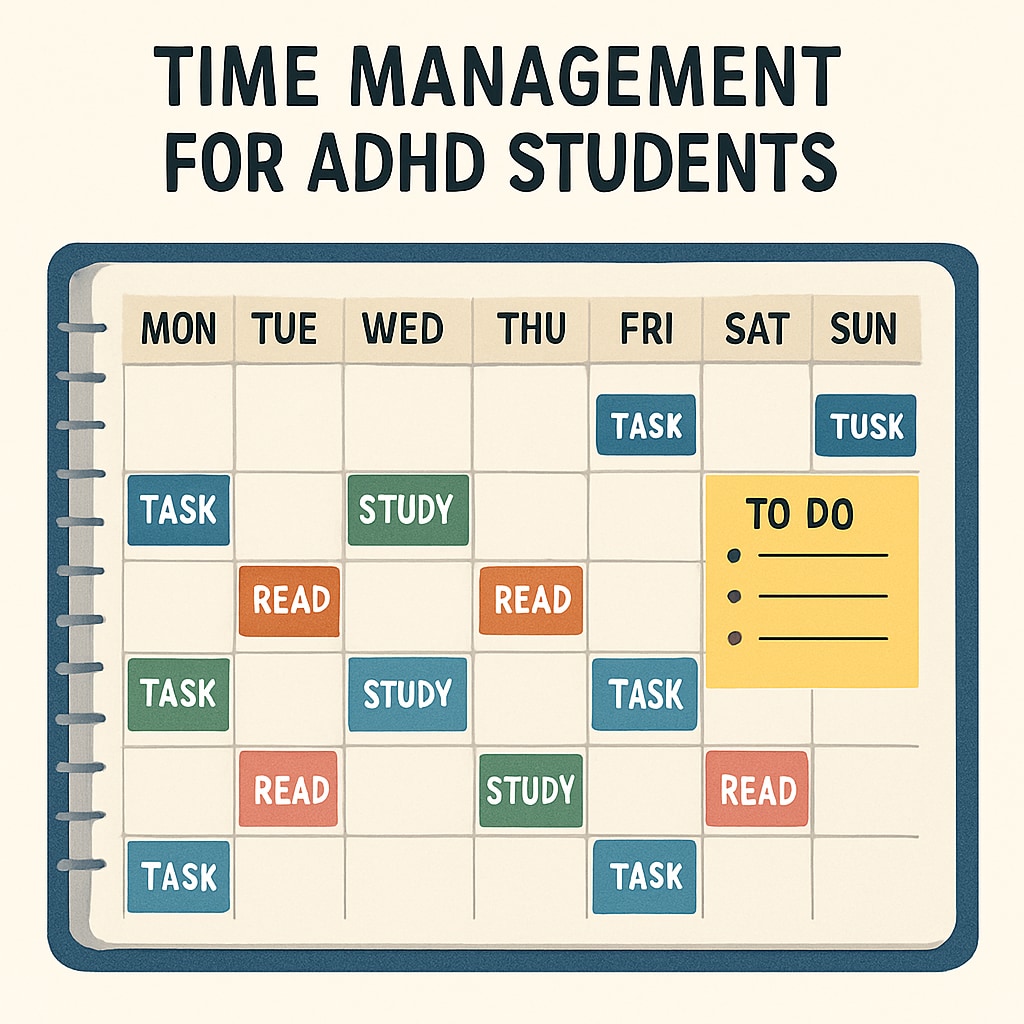For ADHD high school students, falling behind on credits can feel like an insurmountable obstacle. The combination of ADHD-related challenges—such as difficulty focusing, procrastination, and inconsistent organization—can lead to academic setbacks. However, with the right strategies and support, it’s entirely possible to recover credits and get back on track for graduation. This article provides a step-by-step guide to help ADHD students navigate credit recovery, manage time effectively, and achieve their academic goals.
Understanding the Challenges of ADHD and Academic Credit Deficiency
ADHD (Attention Deficit Hyperactivity Disorder) can impact academic performance in various ways. Students may struggle with time management, sustaining attention during lessons, and completing assignments on time. These challenges often lead to missed deadlines, incomplete coursework, and, ultimately, credit deficiencies. According to CDC data on ADHD, students with ADHD frequently require tailored support to meet standard educational goals.
To address credit deficiencies, it’s crucial to first identify the root causes of the problem. Was the issue a lack of understanding of the material? Poor time management? Or perhaps external factors, such as family issues or health concerns? Understanding these factors can help create a personalized recovery plan that caters to the student’s unique needs.

Step-by-Step Strategies to Recover High School Credits
Recovering lost credits requires a proactive and structured approach. Below are practical steps ADHD students can follow to regain control over their academic progress:
- Evaluate Your Credit Status: Meet with your school counselor to review your transcript and determine how many credits you’re missing. This will help you understand the scope of the issue.
- Explore Credit Recovery Options: Many schools offer credit recovery programs, such as summer school, online courses, or evening classes. Research programs that align with your learning style.
- Create a Personalized Plan: Develop a detailed plan that outlines how you will complete your missing credits. Break tasks into smaller, manageable steps to avoid feeling overwhelmed.
- Utilize ADHD-Friendly Study Techniques: Incorporate strategies such as the Pomodoro Technique (working in short, focused intervals with breaks) or using visual aids and planners to track progress.
- Prioritize Communication: Regularly check in with teachers, counselors, and parents to ensure you’re on track and to seek additional support if needed.
Effective Time Management for ADHD Students
Time management can be particularly challenging for students with ADHD, as the condition affects executive functioning skills. To stay on top of assignments and recover credits, consider the following tips:
- Set SMART Goals: SMART stands for Specific, Measurable, Achievable, Relevant, and Time-bound. Break larger tasks into smaller, actionable goals.
- Use Visual Schedules: Create daily or weekly schedules with clear deadlines. Use color coding to prioritize tasks.
- Leverage Technology: Apps like Todoist, Trello, or Google Calendar can help you organize tasks and set reminders for important deadlines.
- Limit Distractions: Designate a quiet, clutter-free workspace for studying. Use noise-canceling headphones or background music to improve focus.

Seeking Support and Building a Strong Network
Recovering from academic setbacks isn’t a journey you have to take alone. Building a strong support system can significantly increase your chances of success. Here are a few ways to seek help:
- Talk to Your Teachers: Teachers can often provide additional resources, such as notes, tutoring sessions, or alternative assignments.
- Engage with a Counselor or ADHD Coach: Professionals can offer personalized strategies to address your specific challenges.
- Join Study Groups: Learning alongside peers can boost motivation and provide accountability.
- Involve Your Family: Family members can help monitor your progress and provide emotional support throughout the process.
Additionally, consider exploring reputable resources like ADDitude Magazine, which provides expert advice tailored to ADHD students and their families.
Staying Motivated and Celebrating Progress
Recovering credits and overcoming academic setbacks can be a long process, but celebrating small victories along the way can keep you motivated. Reward yourself for completing tasks, improving grades, or reaching milestones. Positive reinforcement can boost confidence and help maintain momentum.
Remember, your journey is not just about catching up on credits—it’s also about building skills and resilience that will benefit you in the future. By staying committed to your plan and leveraging the right strategies, you can successfully graduate and achieve your goals.
Final Thoughts: While ADHD and academic setbacks can pose significant challenges, they are not insurmountable. With tailored strategies, the support of your network, and consistent effort, you can recover lost credits and set yourself up for long-term success. Start today, take one step at a time, and remember that progress is always possible.


